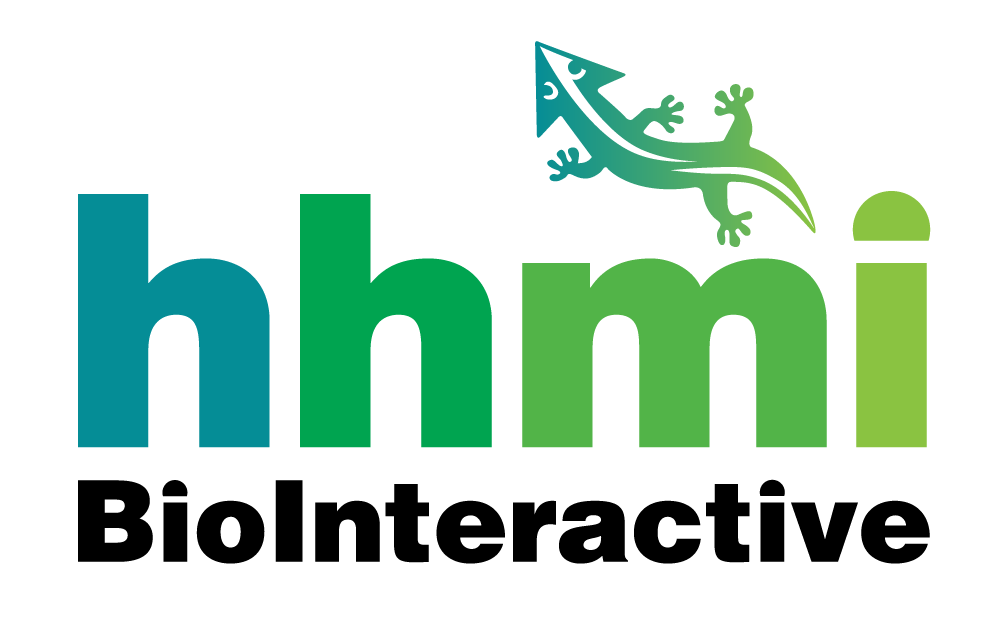HHMI BioInteractive FMN (2016)
Program Information
At HHMI’s BioInteractive, you can find free multimedia resources, including apps, animations, videos, interactives, and virtual labs, supplemented by teacher guides and classroom activities. Recently, we have started to develop quantitative and data-centric resources, including statistics, data manipulation, graph generation and interpretation, and spreadsheet activities. One of our strengths is the scientific authenticity of our work. We have developed a series of films about scientific stories that share the excitement and human element of scientific research through interviews and discussions with scientists. Another film resource is the annual Holiday Lecture series which features talks given by active research scientists on current topics. Educators, scientists, and the BioInteractive team work together to produce supporting classroom materials for these resources to make them even more valuable to educators and students.
The initial target audience for BioInteractive materials was the AP Biology classroom, but most resources are suitable in undergraduate introductory courses and general high school biology classes. Most of these resources have been developed in collaboration with high school teacher advisors, and we are very keen to work with undergraduate faculty to adapt these materials for the undergraduate level. Through this faculty mentoring network, we hope to be able to develop adaptations of existing resources that will fit in the undergraduate educational arena. These adaptations will be shared through QUBESHub, and may be further developed for publication on BioInteractive.
Faculty Mentoring Networks (FMNs) are a method for building supportive communities of faculty interested in addressing similar challenges around teaching quantitative biology. FMNs usually consist of anywhere from ten to twenty faculty participants working with content and pedagogical mentors from the community. The groups share a private space on the QUBESHub where they can have discussions, share resources, and manage group projects. The larger group is subdivided into smaller groups to facilitate discussions. Faculty work together to brainstorm, plan, troubleshoot and generally support one another in their efforts to implement new materials or approaches in the classroom. Mentors facilitate the discussion and provide some guidance and resources.
The value of FMNs is ongoing community interaction, as faculty struggle with the details and challenges of making changes in the classroom. The virtual nature of FMNs makes this long term interaction possible, reducing time and financial barriers to participation.
Participation in this FMN provides the following benefits:
-
Mentored opportunity to explore effective teaching methods to improve classroom learning using data.
-
Access to experts, innovative teachers and mentors.
-
Interactions with colleagues interested in developing quantitative skills through the use of data-centric modules.
- The opportunity to publish a BioInteractive resource.
Once accepted into the Program, participants should plan on the following:
- Participation begins approximately two weeks prior to the workshop with online assignments to establish the Faculty Mentoring Network (FMN)
- Participants will meet and share resources in a private group on the QUBESHub.
- Participants will attend the Summer Institute in Raleigh, NC, June 19-24. This workshop will be a dynamic, hands on workshop where we will explore some of the challenging aspects of teaching quantitative skills, and begin to develop or adapt materials for use in participants’ classrooms.
- After the workshop, participants will meet synchronously for 30 minutes once every two weeks through the Faculty Mentoring Network. During these meetings, the mentor will facilitate discussions about participant progress toward meeting the FMN goals. Participants are expected to be active contributors in these meetings.
- Between online meetings, participants may share ideas and resources around adaptation and implementation or develop reports.
- The development phase of the project will run through the Summer, and the Implementation phase will run through Fall semester.
- Participants will share their materials with the broader public through the BioInteractive Partner site on QUBESHub.
It is important that all participants are able to commit to the full experience. The greatest benefits of these experiences are generated in the interactions with colleagues. Your contributions will be critical to the success of this program.
